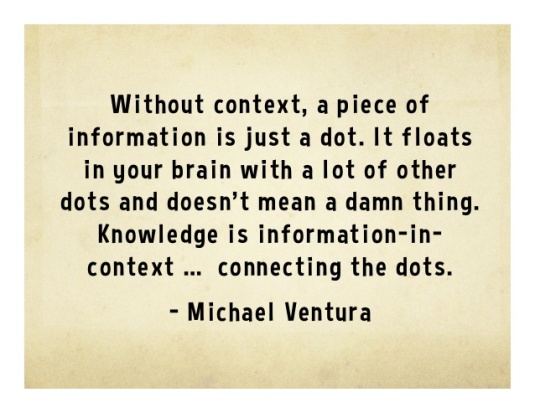Dear reader,
Certainly the most used abbreviation or word in this year of 2023 is AI (Artificial Intelligence), especially after the launch of ChatGPT, a large language model–based chatbot developed by OpenAI, which enables users to refine and steer a conversation towards a desired length, format, style, level of detail, and language used.
All this fuss about the use and advantages of artificial intelligence, mainly due to the improvement of software-related tools (since in terms of hardware, things are still very limited), makes me ask myself sometimes: aren’t people exaggerating a little about it? This reminds me of the excitement some years ago when the word of the moment was “robot” or “robotics”.. 😉
Evidently, the use of artificial intelligence, if used well, can help countless people around the world, no doubts about it. Personally, I believe that in the field of medicine, the use of AI in conjunction with big data can, for example, significantly accelerate the detection of imperceptible cancerous tumors, as well as the development of new remedies for diseases still considered incurable.
On the other hand, to use artificial intelligence to write texts and essays, especially at school or university, is in my humble opinion, the same thing as to shoot yourself in your own foot! Why? That’s because the main purpose of attending a school or university is to learn something and acquire knowledge, and consequently help us to become more autonomous and confident.

“When AI gives us the answers, we are not learning as individuals. For example, teaching and learning is a dynamic activity – a teacher initiating activity by passing it into another person, who practices replicating the teacher’s ability. Mimetically transferring ideas and thoughts from one mind to another. This is qualitatively different from a YouTube walk-through.
The students are not passive recipients. In this example, they learn how to fish. It’s an intrinsically active, interactive experience. This has a survival benefit. It’s a social-emotional algorithm; they can adapt ways of fishing because it’s a technique. As this is a process it requires effort. It’s forging new neural pathways, increasing the cognitive complexity and capability of the student. This effort is the very thing AI helps us avoid. In fact, AI tries to help us in a different way – more like ‘Give a person a fish every day, they never go hungry’. You don’t need to teach them anything. They don’t need to learn anything. The consequence of this approach is that they never learn to fish. The individual interprets ‘teaching’ at a distance without the critical feedback loop of direct interaction.
We, as information seekers, become dependent on being ‘given to’ by the algorithms, on-demand. This utility comes at a cost because neural pathways grow through active learning experiences. AI gives us time and we passively consume. AI suggestions and support remove our need to activate certain brain pathways. What is the ostensible benefit to us? Time. What do we do with the ‘free time’ AI gives us? Without the foundational pillars of critical thought, mediated by embodied learning through experience, our brains effectively default to the lowest energy use through passive consumption.” (Postace)
Besides, do we really need to apply or use artificial intelligence in all possible kinds of jobs? Once, I entered in an online discussion with many recruiters where one of them said: “It’s amazing how AI has helped me to do my job faster and with more confidence. Now I am able to find the perfect candidate in a matter of minutes, instead of hours and even days!” Then, I replied to him: “You should be worried, not happy. That’s because in a near future you won’t be needed at your workplace anymore since they will use just AI to search and find suitable candidates..” He didn’t like my comment and blocked me from their discussion..

It’s worthwhile to mention here that “Artificial intelligence thus gives an artificially constructed representation of a reality that escapes its own judgment. It provides performance, operational advantage, speed, efficiency, and safety. A psychologist would argue that this benefit becomes palpable for the individual to the point that it gives him a sense of power, superiority, pride, and arrogance but also pleasure and enjoyment.
But what technologically enhanced person does not see is that this technological intelligence is no longer his or her. The enhancements place the person under a kind of supervision. S/he willingly abandons, sometimes without realizing it, many cognitive or reflective tasks that previously encumbered him or her. In doing so, s/he loses a number of “natural” sensory skills or abilities, which were certainly less effective, but which were his/her own.
It can therefore be stated here that the danger that awaits all of us is Artificial Ignorance. Let us try to define it. If, as the Larousse encyclopedia says, AI is the set of theories and techniques used to produce machines capable of simulating intelligence, then it is possible to propose that artificial ignorance is the alteration of the inherent (natural) intellectual and cognitive capacities of the human being resulting from a simulation, substitution, or replacement by artificial intelligence.” (Godart)

I do hope that this short article can spark your curiosity and decrease anxieties about the (in)correct use of AI in our daily lives.
BTW, this article was written by a real human being without use of ChatGTP or another similar AI tool! 🙂 Therefore, if I can write by myself, then you can do it too! 😉
Best Regards from the Land of AIs,
Wilson
Words Cited
Postance, Paul. “Is AI Creating Ignorance?” Digital Works Group, Digital Works Consulting, 7 July 2021, http://digitalworksgroup.com/is-ai-creating-ignorance/.
Godart, Lt. Gen. Patrick. “Conclusions and Perspectives.” Military Review – The Professional Journal of US Army, Army University Press, Jan. 2021, http://www.armyupress.army.mil/Journals/Military-Review/Online-Exclusive/2021-French-OLE/Part-7-Conclusions/.









 A real fork in the road, in Carlsbad, California – US (unfortunately it was removed later)
A real fork in the road, in Carlsbad, California – US (unfortunately it was removed later)


